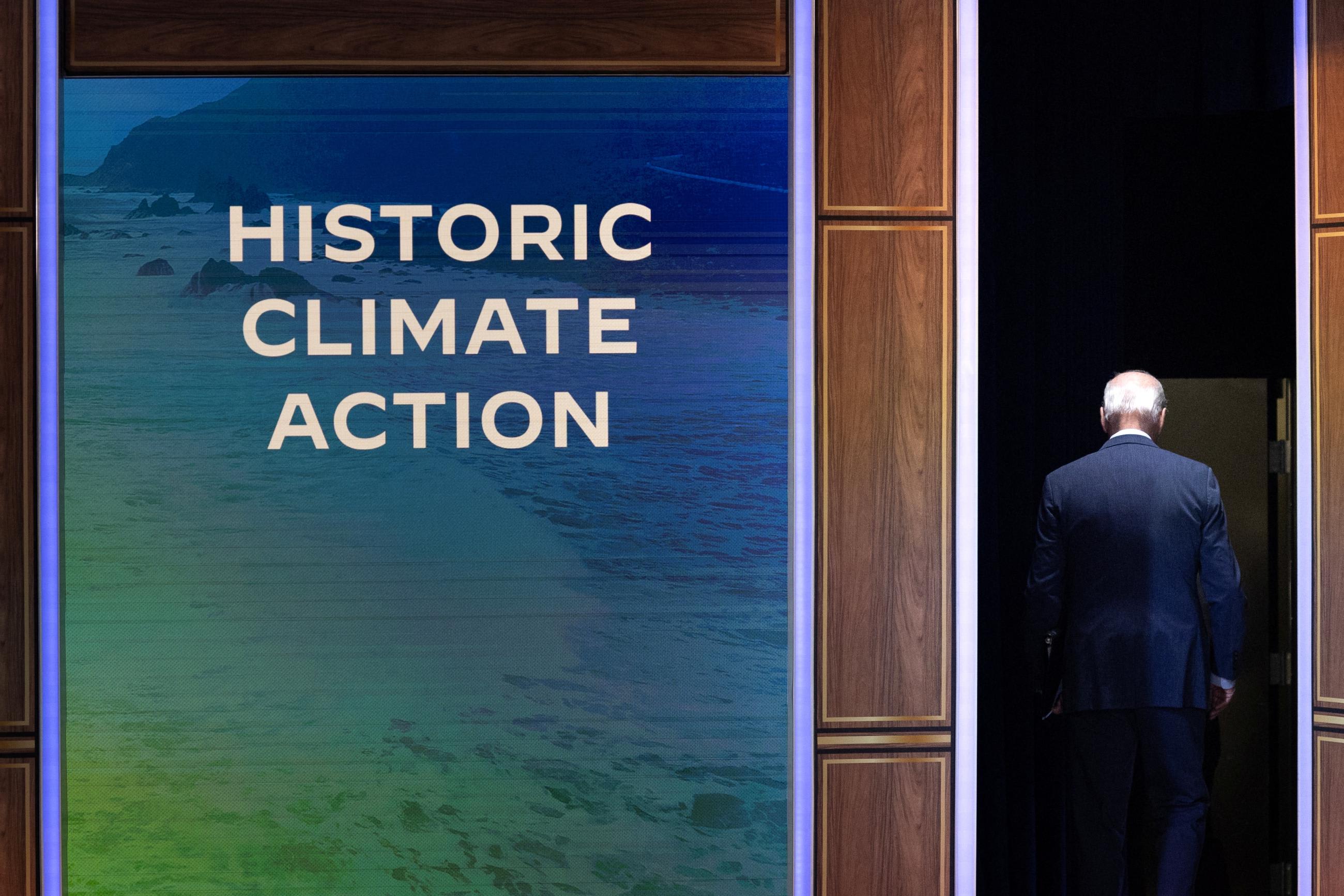In the most recent issue of Foreign Affairs, Daniel Drezner criticizes how U.S. officials and policy entrepreneurs have expanded the scope of national security since the Cold War ended. That expansion, he argues, makes the concept of national security "increasingly meaningless."
Among Drezner's examples of how "national security has been stretched almost beyond recognition" are global health issues, including climate change, HIV/AIDS, and pandemics. His use of those and other problems to critique "how everything became national security" is relevant to controversies about the post–Cold War phenomenon of framing global health issues as security threats. His suggestions for "rightsizing" national security policy also involve global health because of "how drastically pandemics and climate change can threaten the American way of life."
Although about more than the securitization of global health, Drezner's analysis connects with efforts to rethink U.S. foreign policy on global health because of the COVID-19 pandemic and the climate crisis, on the one hand, and the intensification of geopolitics and the polarization of domestic politics, on the other.
To date, the securitization of pandemics and climate change in U.S. policy has become orthodoxy but has failed, which raises questions about the value of national security arguments concerning global health problems. Geopolitical competition and polarized domestic politics are shrinking what national security means in U.S. policy, making national security claims about global health threats even more difficult to sustain.
A New Orthodoxy
Drezner describes how U.S. officials and policy entrepreneurs since the end of the Cold War have labeled many issues as national security priorities "in the hope of gaining more attention and resources," an observation that applies to global health. Such arguments, however, were initially radical because they broke with prevailing security and health policy approaches.
During the Cold War, government officials and policy experts rarely, if ever, argued that international health problems were national security threats. Such arguments made little sense when geopolitical competition between the United States and the Soviet Union dictated national security priorities. In that period, health cooperation fell within what Drezner calls the "low politics" of international relations that dealt with humanitarian and human rights issues.
To date, the securitization of pandemics and climate change in U.S. policy has become orthodoxy but has failed
The Soviet Union's collapse ended the superpower rivalry, left the United States and its Western allies globally predominant, and opened space in national security thinking for transnational problems, including terrorism and pandemics. Those changes encouraged the securitization of global health problems and produced the context in which national security arguments about pandemic preparedness and response gained bipartisan traction.
The resulting securitization blueprint concerned many global health experts. It prioritized the security of high-income countries rather than advancing the right to health within lower-income nations through more equitable distribution of health resources. But, as Drezner shows, the securitization of global health and other issues came to dominate U.S. policymaking and created a new orthodoxy that informs the parade of national security claims about long-standing issues, such as pandemics, and emerging threats, including climate change.
Rhetoric Not Results
The securitization approach to global health, however, has a poor record. COVID-19 exposed the emptiness of decades of bipartisan U.S. rhetoric about pandemics as a national security priority. Years of government and nongovernmental arguments about climate change as a national security problem have not generated adequate or consistent U.S. approaches to mitigation of greenhouse gas emissions and adaptation to the effects of global warming.
Drezner describes how the U.S. response to HIV/AIDS in sub-Saharan Africa—the President's Emergency Plan for AIDS Relief (PEPFAR)—used national security arguments to "marshal resources to combat the global epidemic." He acknowledges that the claims that HIV/AIDS created indirect threats to U.S. national security by weakening economies and societies in Africa might "have been exaggerated," which highlights that PEPFAR had low-politics purposes, including responding to a humanitarian crisis.
The role that national security claims played in PEPFAR, however, does not explain why arguments about direct threats to national security from pandemics and climate change have failed to produce responses on the scale, longevity, and impact of PEPFAR. COVID-19 made clear that the United States prioritized PEPFAR over pandemic preparedness for decades, a pattern incompatible with the securitization orthodoxy. Responses to that problem include post-COVID arguments that PEPFAR supports protecting the United States from the direct threats that pandemics pose—claims that exaggerate PEPFAR's role in protecting the American way of life.

In the Grip of Geopolitics
The securitization blueprint developed during a time of Western dominance, but the return of geopolitics has ended such dominance and triggered international competition for material power and ideological advantage. That transformation in the distribution of hard and soft power has forced the United States to refocus on traditional national security issues, such as military capabilities, domestic economic muscle, and global political influence.
As seen during COVID-19 and in climate change diplomacy, geopolitics marginalize and fragment collective action on health challenges and turn health cooperation into another area of great-power competition. Those changes alter the national security purpose of global health engagement by subjecting it to geopolitical considerations that have little if anything to do with health. That shift incentivizes stretching the securitization approach in new directions to encompass the harvesting of putative balance-of-power and ideological contributions from bilateral and bloc-based health diplomacy.
Geopolitical contributions from such diplomacy, however, promise to be, at best, ephemeral. The United States and its Western allies have learned how little their unrivaled level of global health engagement in the post–Cold War period matters in today's geopolitical world.
That realization underscores that global health leadership does not protect U.S. national security from the military, economic, and ideological dangers posed by China, Russia, and their authoritarian allies. The return of geopolitics, combined with past failures of the securitization orthodoxy, leaves the United States scrambling to simultaneously address direct national security threats from rival powers and transnational health challenges.
Problems on the Homefront
In his recommendations, Drezner offers ways for the United States to set better national security priorities among the geopolitical and transnational threats it faces. He advises sorting "national security issues by timescale and urgency," specifying whether a threat "demands proactive measures, defensive responses, or a mix of both," and producing "an annual scorecard to rank national security concerns by order of current importance."
No political consensus exists on pandemics and climate change as national security threats
Drezner's advice raises questions, including the identification of what national security threats do not require both proactive and defensive actions. The main challenge, however, for his proposals—and any modified approach to securitization—is that political consensus on national security is difficult to achieve in a polarized body politic.
Drezner is aware of the problem because he emphasizes that simply having a "process that lets policymakers agree to disagree" would improve U.S. national security discourse and increase the prospects for strengthened national security.
The polarization problem puts foreign policy on global health in a double bind. In terms of geopolitics, some consensus exists concerning threat that China presents, underscoring the impact that balance-of-power and ideological competition can have on policymaking. Prioritization of geopolitics, however, subjects global health issues to those zero-sum dynamics or shunts such issues down the list of national security priorities.
In terms of transnational health problems, no political consensus exists on pandemics and climate change as national security threats. COVID-19 has coarsened U.S. politics on pandemics and infectious diseases in ways that make the United States less prepared for a serious disease event than it was before COVID-19. The gap between the Democratic and Republican Parties on climate change shows that there is no meeting of the minds on climate mitigation and adaptation. The polarization on pandemics and climate change means that perspectives on those threats to the United States are experiencing as much de-securitization as securitization.
And Now for Something Completely Different?
Sketching out how the long-running debate about the relationship between national security and global health is changing is easier than identifying an alternative approach that could gain political traction and produce better policy results. The domestic political sources of U.S. foreign policy are not aligning coherently against transnational health threats. The change in the structure of power and influence in the international system creates incentives for rival states to weaponize health cooperation while de-prioritizing transnational health problems as national security challenges.
With so much in flux in U.S. and international politics, expecting consilience on a radically different approach to health and national security is premature. The temptation to frame pandemics and climate change as threats to U.S. national security is still strong despite little evidence that securitization has produced better security against those health threats.
As Drezner hints, the pathology of turning everything into a national security problem has produced policy poverty in the United States, especially for global health. That problem has been 30 years in the making, so the remedy will not happen overnight.













